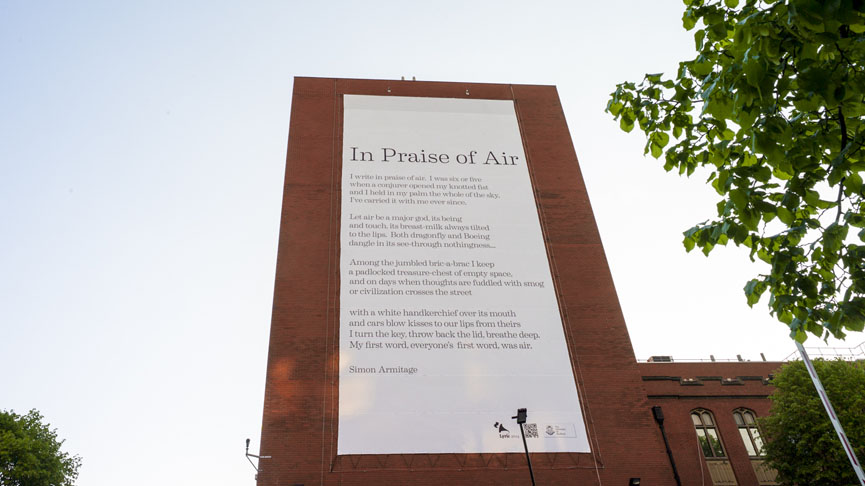
In this passage from Tennyson’s Morte d’Arthur, the mail-clad Sir Bedivere carries his wounded king down to a lake by a narrow path along a cliff:
Dry clash’d his harness in the icy caves
And barren chasms, and all to left and right
The bare black cliff clang’d round him, as he based
His feet on juts of slippery crag that rang
Sharp-smitten with the dint of armed heels —
And on a sudden, lo! the level lake,
And the long glories of the winter moon.
“This passage is particularly interesting in the sudden change from the harsh imitative sounds describing the trip itself to the peaceful passage, dominated by liquids and nasals, representing the arrival at the shore,” writes Calvin Brown in Music and Literature.
He gives two examples of poets attempting to imitate musical timbres. Detlev von Liliencron’s Die Musik kommt describes the progress of a military band through a little German village:
Klingling, tschingtsching und Paukenkrach,
Noch aus der Ferne tönt es schwach,
Ganz leise bumbumbumbum tsching,
Zog da ein bunter Schmetterling,
Tschingtsching, bum, um die Ecke?
And the first stanza of Paul Verlaine’s Chanson d’automne famously imitates a violin:
Les sanglots longs
Des violons
De l’automne
Blessent mon cœur
D’une langueur
Monotone.
In The Craft of Translation, John Biguenet writes, “English simply has no matching nasal sounds in words that would convey the meaning, unless we turn to trombones, and then we have changed instruments.”







